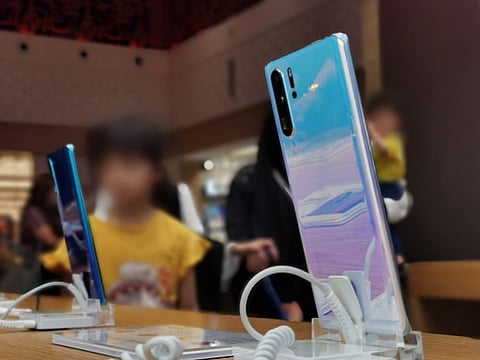US further cuts off Huawei's access to much needed components
Suppliers will need to get special licenses before sending anything over to Huawei

Also In This Package
Shanghai, Seoul: Ramped-up US restrictions on Huawei are likely to cut off the Chinese smartphone maker's access to even off-the-shelf chips and disrupt the global tech supply chain once again.
The Trump administration on Monday expanded its curbs on Huawei and banned suppliers from selling chips made using US technology to the firm without a special license - closing potential loopholes in its May sanctions that could have let Huawei access the tech via third-parties.
The restrictions underscore the rift in Sino-US relations, at their worst in decades, as Washington presses governments around to world to squeeze Huawei out, alleging the company would hand over data to the Chinese government for spying.
"It will have a huge impact," said Gu Wenjun, chief analyst at Shanghai-based consultancy ICWise, referring to tighter US curbs. "It will throw off Huawei's plans to obtain chips by purchasing them externally, rather than relying on HiSilicon."
Huawei has said it will stop making its flagship Kirin chipsets from September because US pressure on its suppliers had made it impossible for its HiSilicon division to keep making the chipsets that are key components in mobile phones.
US reliant
For chip suppliers too, across regions, the ban could be a setback as most use US design software from Cadence Design Systems and Synopsys and chip-etching tools from firms including Applied Materials. In Asia, memory chipmakers including Samsung Electronics and SK Hynix, Japanese image sensor maker Sony and Taiwanese chipset maker MediaTek may be affected.
It is still unclear how many major suppliers have licenses or will need new ones to comply with these rules, or whether those licenses will be granted.
The ban is also likely to affect US companies such as Qualcomm and Intel and other smaller chipmakers in Asia and Europe.
Several questions remain about the how the new curbs will be implemented and how far the US Commerce Department intends to push in terms of requiring knowledge of a transaction that could be on behalf of Huawei or an affiliate on its blacklist, political risk consultant Eurasia Group said in a note.
A semiconductor vendor would "potentially be required to know where all its products end up so they do not engage in any transaction where a Huawei affiliate might be a purchaser, intermediate consignee, ultimate consignee or end-user," Eurasia analysts said.









